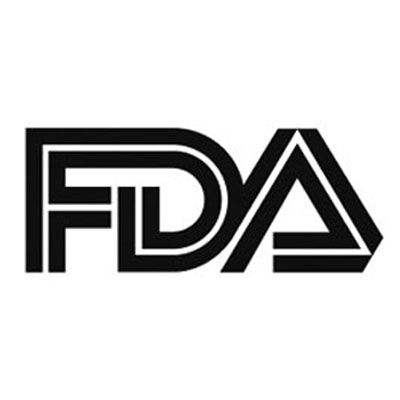FDA Lifts Partial Clinical Hold on Phase II Trial of Lacutamab in T-cell Lymphomas
The phase 2 TELLOMAK clinical trial is no longer on a partial clinical hold. As a result, trial enrollment with continue in patient with advanced T-cell lymphomas.

The lacutamab TELLOMAK phase 2 clinical trial, which aims to evaluate the efficacy and safety of lacutamab in patients with advanced T-cell lymphomas, has been removed from clinical hold by the FDA based on a review of further information.
“We are pleased that the FDA has approved the new clinical batch for the TELLOMAK trial, and we can resume enrollment of patients with Sézary syndrome and mycosis fungoides given the importance of novel and effective treatment options needed for these patient populations,” commented Pierre Dodion, MD, executive vice president, and chief medical officer of Innate Pharma. “We’re confident in our ability to supply lacutamab in this important trial moving forward, and look forward to reactivating the trial globally as quickly as possible.”
The FDA specifically completed a quality assessment of a new Good Manufacturing Practice-certified batch of lacutamab, which was manufactured for clinical developmental use.
TELLOMAK may now continue to enroll patients.
TELLOMAK is an open-label, multicohort, multicenter study of lacutamab alone or in combination with chemotherapy to treat Sézary syndrome and Mycosis fungoides in patients with advanced T-cell lymphoma. Approximately 150 patients will be enrolled in the study, 60 of whom will be patients with Sézary syndrome with mycosis fungoides who have received at least 2 prior systemic therapies, including mogamulizumab (Poteligeo) and 90 patients who have mycosis fungoides and received at least 2 prior systemic therapies.
Four cohorts are explored in the study, including patients with relapsed/refractory Sezary syndrome, patients with stage IB-IV mycosis fungoides with KIR3DL2 expression, participants with stage IV-IV mycosis fungoides without KIR3DL2 expression, and patients with peripheral T-cell lymphomas that are KIR3DL2-expressing.
The primary end point of the study is objective response rate, and the secondary end points include the incidence of treatment-emergent adverse events, quality of life in cohorts 1 through 3, pruritus in cohorts 1 through 3, overall response rate per central review in cohort 1, overall response rate lasting at least 4 months in cohorts 1 through 3, progression-free survival, overall survival, pharmacokinetics, the immunogenicity of lacutamab, and the impact of the agent on the minimal residual disease in cohort 1.
Patients in the study are required to have adequate baseline laboratory data, presence of at least 1 targetable lesion at screening, ability to obtain 1 lymph node, and an ECOG performance status of 2 or lower.
Lacutamab, a first-in-class anti-KIR3DL2 humanized cytotoxicity-inducing antibody, was designed for the treatment of patients with cutaneous T-cell lymphoma, which is a rare type of lymphoma associated with a poor prognosis. These patients often have few therapeutic options in advanced stages of disease. KIR3DL2 is expressed in approximately 65% of patients with cutaneous T-cell lymphoma subtypes and up to 85% in more aggressive subtypes such as Sézary syndrome.
This agent previously received an Orphan Drug designation in the United States and European Union and was also granted a Fast Track designation in January 2019 by the FDA for the treatment of adult patients with relapsed/refractory Sézary syndrome who received at least 2 previous lines of systemic therapy.
Reference:
U.S. Food and Drug Administration lifts partial clinical hold on lacutamab tellomak trial in advanced t-cell lymphomas. News release. June 24, 2020. Accessed June 24, 2020. https://bit.ly/2Z5kbRF
Examining the Non-Hodgkin Lymphoma Treatment Paradigm
July 15th 2022In season 3, episode 6 of Targeted Talks, Yazan Samhouri, MD, discusses the exciting new agents for the treatment of non-Hodgkin lymphoma, the clinical trials that support their use, and hopes for the future of treatment.
Listen
Later-Line CD19 and Bispecific Therapies Considered After CAR T
October 1st 2024During a Case-Based Roundtable® event, Christopher Maisel, MD, discussed third- and fourth-line therapy and barriers to bispecific therapy use in diffuse large B-cell lymphoma in the second article of a 2-part series.
Read More
Participants Discuss LOTIS-2 Data Based on Patient Case of DLBCL
September 16th 2024During a Case-Based Roundtable® event, Christopher Maisel, MD, discussed the data behind loncastuximab and whether participants with use this treatment for patients with diffuse large B-cell lymphoma in the first article of a 2-part series.
Read More
Superior Outcomes With Brentuximab Vedotin Triplet in Diffuse Large B-Cell Lymphoma
September 11th 2024The addition of brentuximab vedotin to lenalidomide and rituximab significantly improved survival and response vs lenalidomide/rituximab alone in patients with relapsed/refractory DLBCL.
Read More